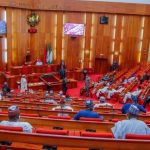…approves N15,000 stipend for widows, CONLESS for Assembly workers
Delta State Governor, Rt. Hon. Sheriff Oborevwori, on Wednesday claimed that 266,737 Deltans have benefited from various state-run social intervention programmes, despite growing concerns about the actual reach and impact of these initiatives amid worsening economic conditions.
Delivering his State of the State address to members of the Delta State House of Assembly in Asaba, Governor Oborevwori outlined a litany of empowerment schemes designed to offer a “safety net” to vulnerable populations.
However, critics argue that the figures, while impressive on paper, have yet to translate into meaningful relief for many communities still grappling with poverty, inflation, and unemployment.
“Our administration has been deliberate and proactive in supporting the most vulnerable through targeted social protection programmes,” the governor said, citing efforts under schemes like Delta CARES (D-CARES), Women Empowerment and Skill Acquisition Programme (WESAP), MORE Biz-Up, and the Widows Welfare Scheme.
According to Oborevwori, 247,000 individuals benefited from the D-CARES programme, with an additional 2,000 farmers empowered through a N1 billion counterpart fund contribution to the AUDA-NEPAD agricultural support initiative.
He added that under WESAP, 220 women were trained in fashion design, catering, and other vocational skills, while 91 people with disabilities received training in ICT and creative industries.
Other highlights included:
2,000 women trained in mental health, entrepreneurship, and practical skills via the Working Fingers Initiative.
5,426 petty traders supported with micro-grants through the MORE Grants Scheme.
2,000 MSMEs funded under the MORE Biz-Up Programme.
But beyond the figures, analysts and opposition voices are asking harder questions: How many of these initiatives are traceable and independently verifiable? What mechanisms ensure that aid actually reaches the grassroots, and not just political loyalists?
Meanwhile, Oborevwori announced a major welfare boost for widows, approving a N15,000 monthly stipend for 10,000 widows statewide. Though welcomed by some, others view it as a token gesture in the face of deeper systemic challenges.
“This administration holds the welfare of widows in high regard,” he said. “We will continue to do everything possible to improve their lives.”
In a move likely aimed at strengthening executive-legislative harmony, the governor also announced the approval of the Consolidated Legislative Salary Structure (CONLESS) for Delta Assembly workers, effective June 2025.
“As a former Speaker, I understand the importance of CONLESS,” he said. “I thank the workers for their patience and support.”
While the announcement was met with applause from lawmakers, critics point out that approval delays and the absence of broader civil service reforms continue to erode worker morale across sectors.
Oborevwori concluded by praising the House of Assembly for what he described as a “mutually respectful and transparent relationship” with his office, asserting that his administration is committed to “shared prosperity” for all Deltans.
A Promise or Political Optics?
Observers say the governor’s address painted a glossy picture of progress in a state still wrestling with critical development challenges, from youth unemployment and insecurity to worsening healthcare and dilapidated infrastructure.
“It’s not enough to list numbers,” said a civil society monitor in Asaba. “We need data transparency, third-party audits, and real grassroots feedback before these figures can be trusted.”
Whether Governor Oborevwori’s latest commitments mark a genuine turning point or remain political optics ahead of future elections remains to be seen.

















